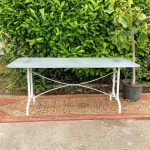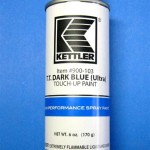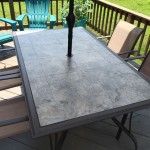Sanding and Staining Oak Table: A Step-by-Step Guide to a Flawless Finish
Whether you're restoring an antique oak table or giving a new one a customized look, sanding and staining are essential steps for a professional-quality finish. Here's a comprehensive guide to help you achieve stunning results:
Step 1: Sanding
Begin by choosing the appropriate sandpaper grits for your project. For removing old finish or smoothing rough surfaces, start with coarser grits like 80 or 120. For finer sanding, move to grits like 180 or 220.
Sand with the grain of the wood, using a sanding block or orbital sander. Apply light to medium pressure and overlap your strokes to ensure even sanding. Gradually switch to finer grits as you remove scratches and achieve a smooth surface.
Step 2: Cleaning
Once sanded, thoroughly clean the table surface to remove dust and sanding residue. Use a tack cloth or a damp cloth followed by a dry one. This will help the stain adhere properly.
Step 3: Applying Pre-Stain Conditioner
Optional but highly recommended, a pre-stain conditioner helps even out absorption and prevent blotching. Apply it evenly with a clean cloth or brush, allowing it to soak in for the recommended time before staining.
Step 4: Staining
Choose a stain that complements your desired finish. Use a foam brush or cloth to apply the stain in thin, even coats. Allow each coat to dry completely before applying the next. The number of coats required depends on the desired color intensity.
Step 5: Removing Excess Stain
After the final coat has dried, wipe off any excess stain with a clean cloth. Pay attention to edges and areas where it may have pooled.
Step 6: Applying Polyurethane Finish
Polyurethane protects the stained surface and enhances its durability. Apply with a brush or foam pad, using thin, even coats. Allow each coat to dry completely and sand lightly with 220 or 320-grit sandpaper to smooth any brushstrokes.
Step 7: Finishing Touches
Once the polyurethane has cured, apply a paste wax or furniture polish to enhance the finish and protect it from scratches and stains.
Tips for a Flawless Finish
- Test the stain on an inconspicuous area first to ensure desired color.
- Use a clean, lint-free cloth for all steps to avoid introducing particles.
- Allow ample time for drying between coats to prevent bubbles or cracking.
- Protect your work area with drop cloths and wear appropriate safety gear.

Staining An Heirloom Oak Table

8 Easy Steps To Refinish An Old Oak Table And Chairs

Staining An Heirloom Oak Table

How To Refinish A Table Sand And Sisal

Sanding Solid Oak Table Seeking Matte Finish Which Will Not Darken

Oak Table Makeover B Superb

How To Stain Oak Dining Table Over Existing Finish Diy Hometalk

How To Refinish A Dining Table Without Stripping The Original Coat

Cherry Table Stained Gray

How To Ceruse An Oak Dining Table Addicted 2 Decorating








